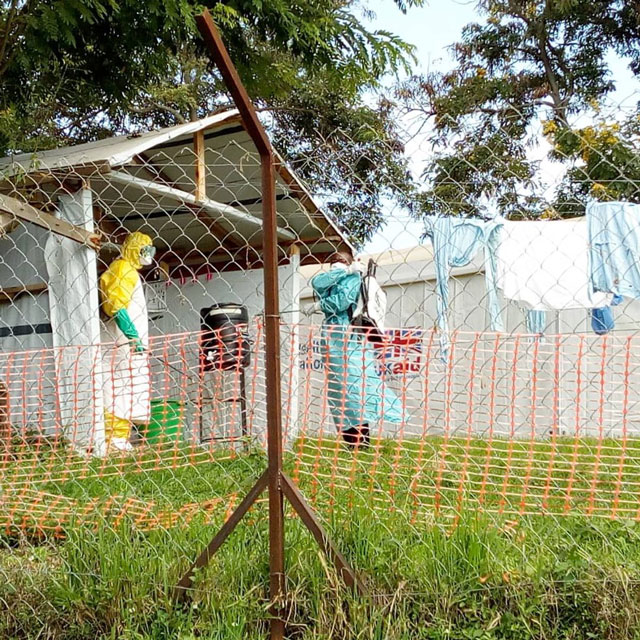
Kampala, Uganda | THE INDEPENDENT | The Ministry of Health is assessing the risk that the recently declared Ebola case in DRC presents to the country.
According to the health ministry, surveillance teams have been sent to the border districts of Kasese, Ntoroko and Bundigudbyo to study the situation and give a status report that will determine the next course of action.
The assessment comes after a woman succumbed to Ebola in the DRC last week in Butembo city located in North Kivu. So far, over 70 people who came into contact with her have been traced by the World Health Organization.
However, due to the high number of people from the DRC who enter Uganda daily, the health ministry is carrying out a risk assessment to plan for any eventualities.
Emmanuel Ainebyoona, the health ministry senior public relations officer says that the health ministry is first assessing the risk the most recent declared cases presents to the country before a budget can be drawn for the response.
“We are carrying out a risk assessment in border districts. The assessment will help us determine what we need to do and how much we need to be in a prepared state,” he said.
According to Ainebyoona, during the assessment, the officials will look out for the level of alertness among communities, availability of handwashing facilities in communities and at the border crossing.
With the on-going COIVD-19 pandemic that is government’s main focus, Dr Joyce Moriku Kaducu, the Minister of Health for Primary Health Care says they are mobilizing resources from partners to fund the country’s response plan when one is available.
During the 2018 Ebola outbreak in North Kivu which lasted two years and spilt into Uganda with three confirmed cases, 3,481 cases and 2,299 deaths were reported. There were at least 1,162 survivors recorded.
In 2019, all resources were aimed towards responding to Ebola with the health ministry raising the level of alertness by setting up walk through infrared thermometers at borders, carrying out robust media campaigns and relying on Village Health Teams(VHTs) to sensitize communities. Uganda’s response plan at the time cost more than 20 Billion Shillings.
However this time around, with every available resource being channelled towards the fight against the COVID-19 pandemic and the procurement of the much-awaited vaccines, Uganda appears to be vulnerable if Ebola strikes.
According to Kaducu, the new response plan will have to cater for how the country can respond to two disease outbreaks given that isolation wards and former Ebola treatment wards will now have to be used to cater for two disease outbreaks.
*****
URN
 The Independent Uganda: You get the Truth we Pay the Price
The Independent Uganda: You get the Truth we Pay the Price





